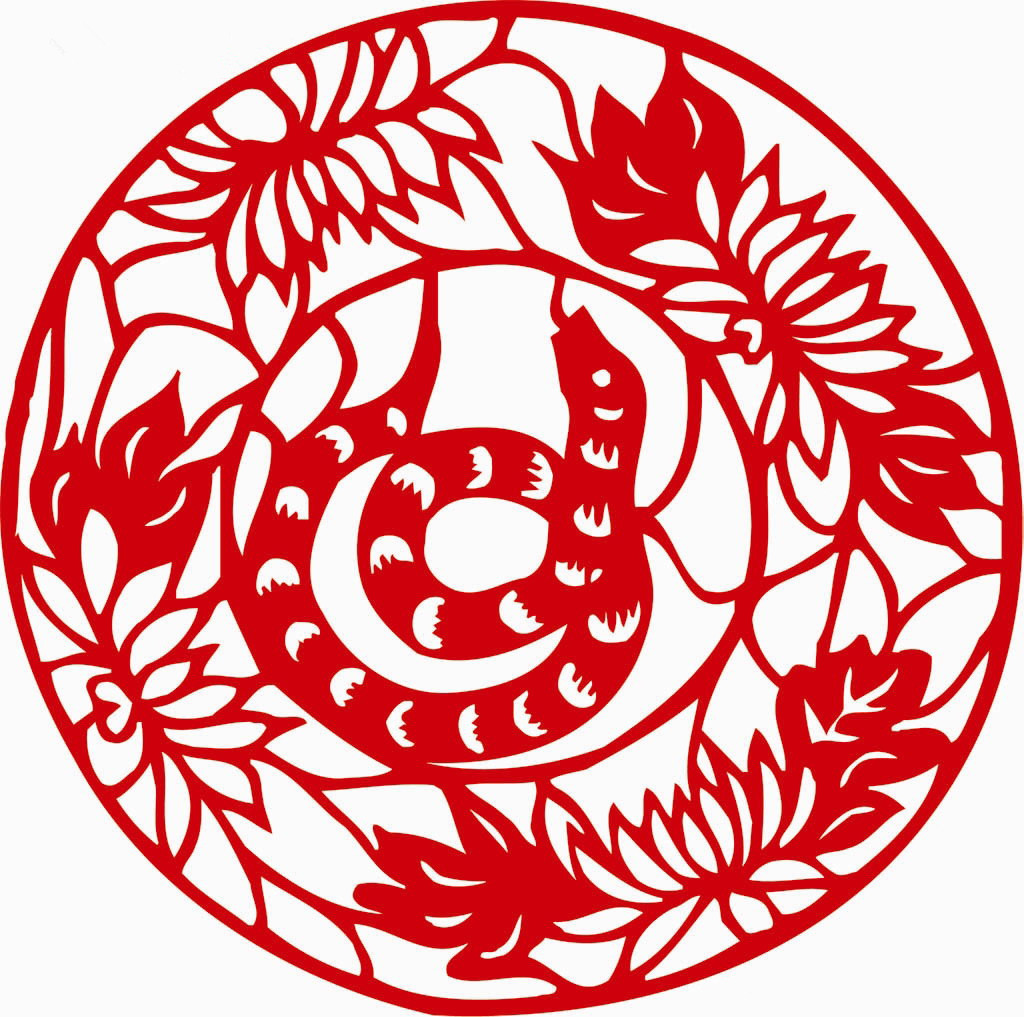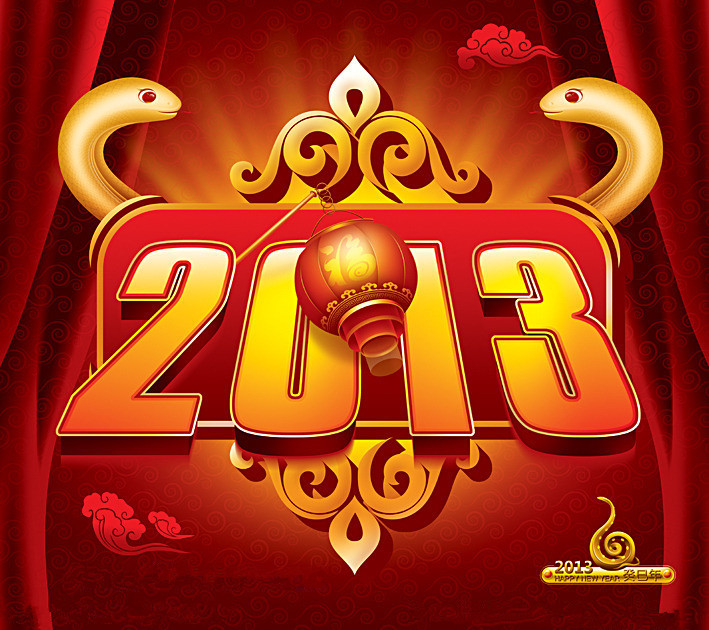
Chinese will begin on Feb. 10 celebrating the lunar New Year, or the Spring Festival. Most Chinese follow the traditional cultural elements and customs in the most festive season every year.
YEAR OF Snake (蛇)

The Spring Festival this year marks the beginning of the "Year of the Snake," according to the Chinese Zodiac which assigns one animal, either real or fabricated, to each year, repeating every 12 years. The snake ranks sixth in the Chinese Zodiac, preceded by the dragon and followed by the horse.
Snake carries the meanings of malevolence, cattiness and mystery, as well as acumen, divination and the ability to distinguish herbs. In some places, people believe that a snake found in their court can bring delight.
People born in the Year of the Snake are reputed to be thoughtful and wise and to approach problems rationally and logically, seldom instinctively.
FIREWORKS, LANTERNS, COUPLETS
Most people stay up late on the eve of the Chinese New Year, watching TV gala, eating snacks and cozying up with their families. Those who choose to go to bed early are often woken up at midnight by fireworks noise, which continue for many days thereafter.
The fireworks and the red decorations in front of many homes and businesses were originally intended to scare away the "Nian" (year in Chinese), a mythical beast supposed to have preyed on people and livestock at the turn of the year. The monster, however, was afraid of bangs and the red color.
Although few now believe existence of the monster, Chinese families carry on the tradition of hanging red lanterns, setting off fireworks and fixing red scrolls with rhyming phrases on their doors, hoping all the items can ward off evil spirits and bring in good luck.
NEW YEAR EATS
Dishes served during the Spring Festival often carry symbolic meaning.
In northern China, dumplings are an indispensable dish for the New Year dinner. Many believe eating dumplings will bring fortune, because the food resembles "yuan bao," a boat-shaped gold ingot that was used as currency in centuries past.
Although most dumplings are filled with vegetables, meat or fish, some families put special items, most often coins, in one of their dumplings when they are preparing their meal. The person who finds the "special dumpling" is believed to have good luck for the whole year.
In southern China, where most people prefer rice to wheat, families eat glutinous rice cakes instead of dumplings for the new year. These cakes are also symbols of a prosperous new year.
Fish and leeks are also common, as their names sound like "abundance" and "longevity," respectively.
Nowadays, the large dinners prepared during the festival feature less symbolism and are seen more as an occasion for family reunions, especially for those who live and work away from home and return once a year for the festival.
LUCKY MONEY
Children are especially fond of the Spring Festival because they know it will bring them gifts in the form of red envelopes stuffed with lucky money, presented by parents, grandparents and other relatives.
The custom is intended to convey new year greetings and protect children from bad luck during the new year. The amount given can range from 50 yuan (7.9 U.S. dollars) to several thousand yuan, but the money must be given in an amount that ends with an even number.
It can be given in exchange for a child's new year greetings, or be stuck under the child's pillow during the night.
TABOOS
There is a long list of things that Chinese would avoid during the Spring Festival, though the specific items vary from one region to another.
Chinese households carry out a full clean before the New Year Eve, partially to usher in a "clean" new year, and also because doing it at the start of the New Year is believed to clear the way for good luck.
Quarrels, crying and cursing are forbidden, as people fear that bad behaviors during the New Year would continue for the rest of the year.
Many superstitious northern Chinese also believe that if a person has a haircut during the first month of the lunar year, his maternal uncle will die.
As a result, some barbershops are open nearly 18 hours a day in need of the pre-holiday rush for haircuts, which lasts for at least two weeks towards the New Year Eve.
While women like to spruce up for the holiday, men with short hair even like to get an extra haircut before the new year, lest they have too long hair in one month before next haircuts, which are often scheduled for the second day of the second lunar month.
The tradition can be traced back to an ancient story about a barber who could not afford a decent new year gift for his maternal uncle, choosing instead to give his uncle a haircut that made him look many years younger. After his uncle passed away, the barber missed him very much, crying with the coming of each new year. The Chinese phrase for "missing one's maternal uncle" ("si jiu") is very close in pronunciation to the phrase for "death of one's maternal uncle."
